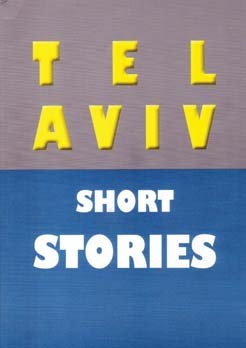Tel Aviv Short Stories - A Review
Tel Aviv Short Stories
Edited by Shelley Goldman and Joanna Yehiel.
Ang-Lit. Press.
Softcover. 503 pgs.
Well, it had to happen sooner or later. After fully one hundred years since that now famous gathering of seriously overdressed people huddling amidst the sun-bleached sand dunes stretching northward from Jaffa — the April 1909 seaside gathering that led to the founding of Tel Aviv — a group of mostly immigrant "Anglo-Saxon" authors, writing in English, have produced a book of short stories depicting life and love in the burgeoning metropolis. In Tel Aviv Short Stories, edited by Shelley Goldman and Joanna Yehiel, we have perhaps the most ambitious attempt to date to provide the world with a taste of life in Israel's colorful cultural capital, from the unique perspective of expatriates from English speaking countries. Yes, with all of the literary and artistic talent, both famous and obscure, with which Tel Aviv has so long been blessed, a book of this sort had to appear sooner or later. One wonders why it took fully 100 years.
The editors have produced an anthology of 53 short stories chosen by an 18-member selection committee from some 200 or more stories submitted for consideration. The result is 500 pages of uniformly good writing, a lot of it sparkling with wit and insight. The stories are grouped into such categories as Chance Encounters, Beginnings and Endings, Dating, Love and Marriage, Family, Friendship and Urban Legends. The flow of the stories gives the anthology overall something of the feeling of New York Stories, a 1989 movie of three vignettes directed by Francis Ford Coppola, Martin Scorsese and Woody Allen. The characters are interesting, and the conflicts are relevant and easy to identify with.
Happily, the stories are entertaining and largely upbeat. The desperately sad realities that inspired earlier generations of Tel Aviv writers — poverty, dislocation, refugee trauma and Holocaust memories — do not appear here. The world depicted by the mostly young authors of Tel Aviv Short Stories is a young people's world, driven by love, lust, angst, relationship issues and career pursuit. The book's rear cover blurb describes some of the stories as follows:
"A young American's vain quest for the mythical Tel Aviv of his childhood. A barren woman strips down to her secular roots. A kibbutznik's search for a room-mate with benefits on a gay internet site. Tel Aviv beach in the morning and Jenin at night — not exactly what the UK born wannabe hero signed up for. The clock is ticking for a single woman with two marriage proposals. A rain-soaked stranger tells an indignant daughter: "It's time to move on."
Anyone wishing to further the cause of creative writing in English here in Israel — or indeed anyone who enjoys the art of short story writing — will want to read, discuss and own this anthology. This collection of 53 sometimes clever, sometimes quirky slice-of-life sketches is a very good read.
That said, the book is not without one major deficiency. Stated plainly, there is simply not enough Tel Aviv in Tel Aviv Short Stories. A few too many of the story lines, conversations, characterizations, comedies and tragedies could just as easily be happening somewhere on the upper east side of Manhattan as in Tel Aviv. This is a sorely felt disappointment, and one that arises directly from what I believe was a misjudgment on the part of the editors. As they declare in their Forward:
"Tel Aviv's centenary inspired this short story anthology, but the selection criterion is 'fiction,' with the city as 'backdrop,' not theme. The 53 stories, written by English speaking writers living mostly in Israel, reflect the city's cosmopolitan, edgy, eclectic, fun-loving vibe, but the focus is people, not places. We like to think the starry-eyed dreamers on that beach in 1909 would want it that way."
Those 'starry-eyed dreamers' might want it that way, but world literature demands a more significant contribution from the first Jewish city in 2000 years. Relegating Tel Aviv to the role of "backdrop" would be understandable if Tel Aviv were someplace like Raanana, but with all due respect to that beautiful suburban town, Tel Aviv is much more. It is, as the editors say, cosmopolitan, edgy and eclectic; it is also alluring, enigmatic, funny and at times sad. Tel Aviv is a city filled with virtually every sort of human being God has seen fit to put on Earth. It is a city with bona fide, full-fledged urban legends, despite having had only 100 years to create them. Who can truly describe this city, and who will interpret and explain it to the rest of the world?
I once watched my elderly father, on a visit to Israel from the U.S., gaze moodily at Tel Aviv through the window of a taxi as it rattled its way down Hayarkon Street. I don't know what exactly he had been looking at, or what had been going on in his mind, but he turned to me and said, "This place reminds me a little of Los Angeles in the 1940s." If that is so, then let us hope that Tel Aviv soon finds its Raymond Chandler, or anyone whose fiction can properly encapsulate this always surprising, sometime unfathomable city.
Until that person comes along, however, Tel Aviv Short Stories will do quite nicely.








Comments